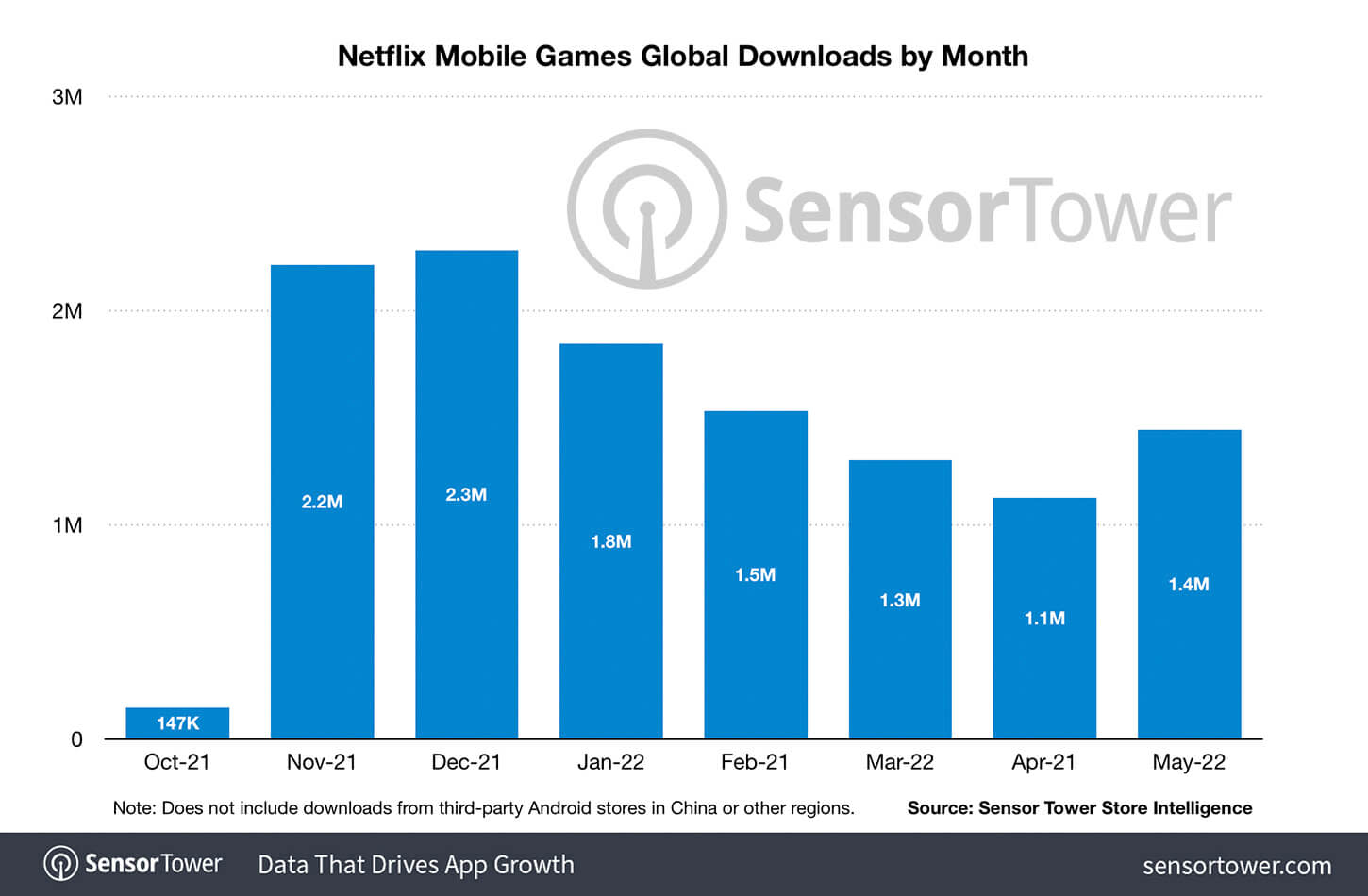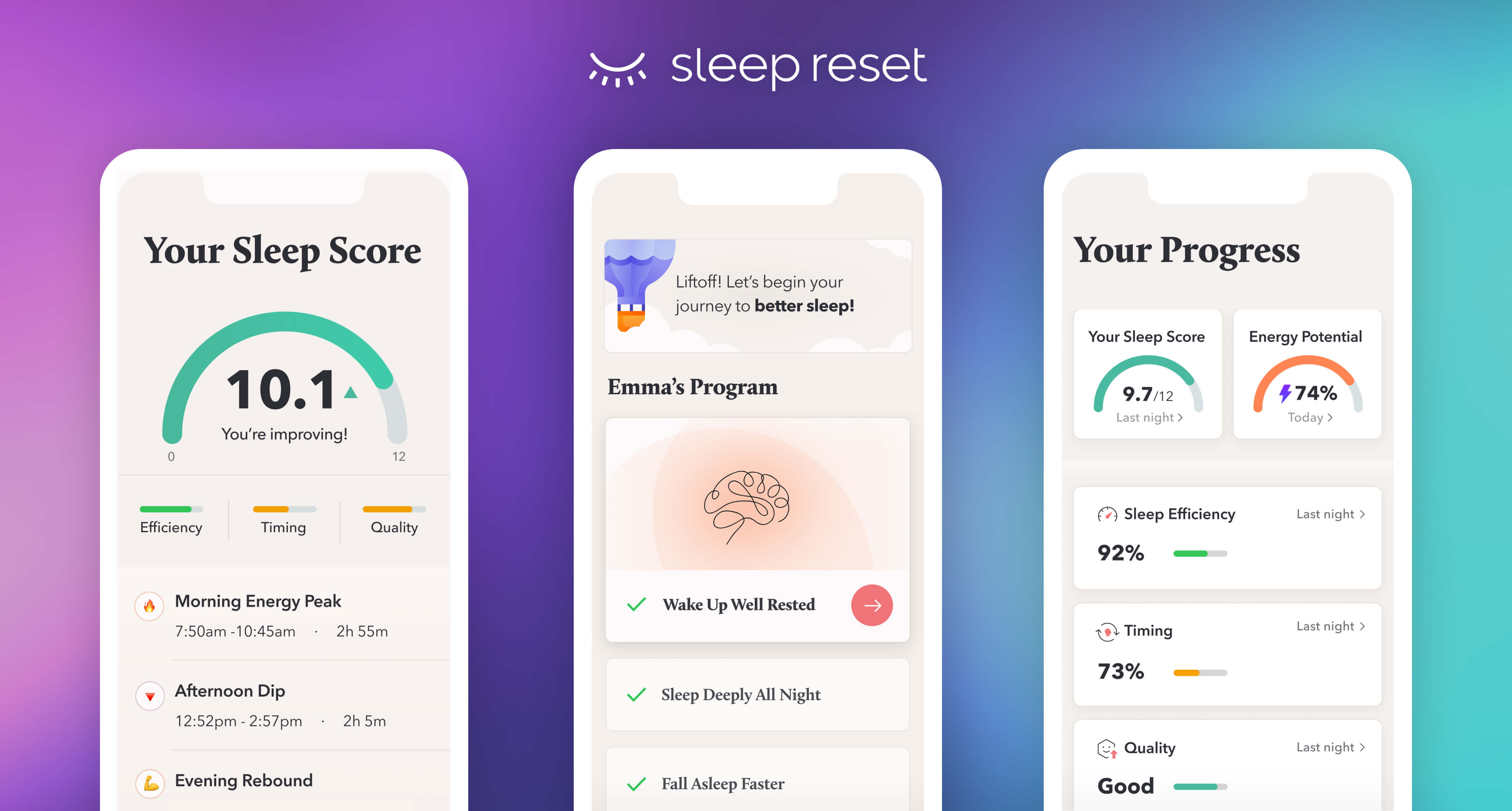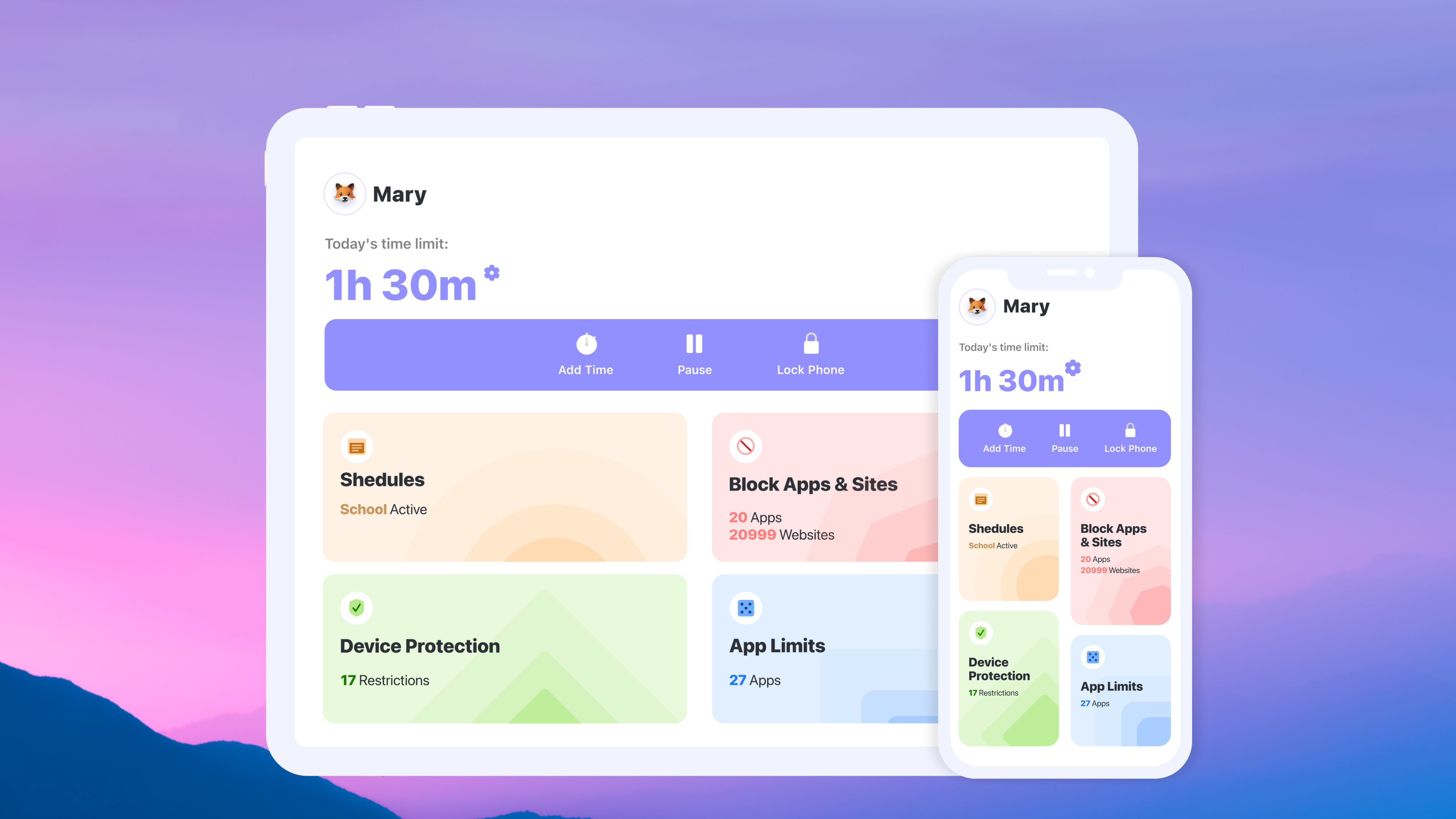TechCrunch |
- Down bad
- Another brutal week for crypto and crypto companies
- This Week in Apps: Apple’s Sherlocks, Instagram’s ‘nudges’ and a TikTok-Oracle deal
- I’m not too worried about recommending another (few) tech podcasts
- The rise of API-first companies, in fintech and beyond
- Bitcoin falls below $20,000 and Ethereum sinks past $1,000 as crypto market free fall continues
- Founders of recycling startups say the pandemic changed the investment game
- Microsoft and Meta join Google in using AI to help run their data centers
- Pentaform launches AbacusBasic, the ‘world’s most affordable PC’
- Layoffs hit crypto and real estate tech particularly hard this week
- Daily Crunch: Citing ‘overreaching activism,’ SpaceX reportedly fires workers who decried Musk’s behavior
- Black founders are seeing a decrease in funding amid economic downturn
- Meta is launching a digital clothing store where you can purchase outfits for your avatar
- Brex leaving adrift some SMB customers roils corporate spend market
- Grace debuts privacy-focused parental controls for iOS devices built with Apple’s Screen Time API
| Posted: 18 Jun 2022 01:33 PM PDT Welcome back to Chain Reaction. Last week, we talked about layoffs and the Winklevoss rock gods. This week, we’re looking at a new layer of crypto doom and gloom. Get this newsletter in your inbox every Thursday by subscribing on TechCrunch’s newsletter page.
crash reduxWe've talked crypto crashes a couple times already in the short life of this newsletter but the sell off this week has spooked crypto insiders in a very different way. Things are happening so quickly right now that even seasoned crypto investors seem to be feeling uneasy about this one. While crypto winters have come before, they've never aligned with warning signs of a broader prolonged recession. Things have already plunged so quickly at the signal of a recession that insiders fear a lengthy bear market could hit crypto far more brutally than expected — tearing tokens to lows far below the highs of the 2017 bull run. This means rough things for tokens, but also more brutal realities for the entire ecosystem. This week, we saw the interconnectedness of major institutions as crypto lending protocol Celsius stuttered and brought down Ethereum prices with it as investors feared a price collapse brought on by reportedly over-leveraged players like 3 Arrows Capital. Despite the decentralization ethos of crypto, the potential for cascading failures seems every bit as possible for the crypto world as it does for traditional finance markets. If things do fail harder and faster than before, the question is how quickly young startups and crypto communities can adjust to shifting fortunes. Few companies have to deal with the stressed of both crypto and public markets like Coinbase which laid off more than 1,100 people this week, but plenty of startups raised mega-rounds in 2021 to theoretically future-proof their companies. For DAOs and protocols with treasuries sitting in ETH, many have seen their budgets for community efforts and stretch projects decimated, threatening their survival. Without the promise of riches or with reduced interest in blockchain-based exclusivity, where will consumer demand go? Will governance communities grow more self-motivated and more concerned about short-term goals when their groups have gone from being filled with millionaires to seeing their profits disappear into thin air? How much worse will things get? the latest podSomebody call 911. Crypto lending protocol Celsius isn't fire burning, but it did freeze all customer withdrawals this past weekend, citing concerns about its own liquidity amid "extreme market conditions." Since then, the firm, which claimed to have 1.7 million users before the pause, has seen its own token plummet (and then recover, and plummet again), and sent the already-struggling crypto markets into a tailspin. We talked through what went wrong on the Celsius network and how it's surprisingly intertwined with the rest of crypto. Regulators are seizing this moment in the downturn, while web3 is already looking pretty shady and investors are pissed about losing money, to crack down on certain firms in the space. From BlockFi to Binance.US, some of the biggest names in crypto are facing lawsuits and/or fines for their practices. The tech billionaire bros are still alright, though, for better or for worse. Block's Jack Dorsey announced this week that he's ready to cancel web3 and move on to his vision of the internet, which he's calling "web5." Elon Musk weighed in with a particularly creative proposal too, which we discussed in this week's episode. Our guest, Aaron Levie, built a successful SaaS business in Box, and now he's on a mission to beef – respectfully – with web3 stans all over Twitter. Levie explained to us how he manages to walk the fine line of being a crypto critic without landing in the bulls' bad books. Subscribe to Chain Reaction on Apple, Spotify or your alternative podcast platform of choice to keep up with us every week. follow the moneyWhere startup money is moving in the crypto world:
the week in web3Crypto markets were down pretty bad last week (though admittedly, it's only been downhill since then). But temperatures were up in Austin, Texas, as 20,000 people in the crypto community came together to discuss how to navigate their industry looking like it might go up in flames. Anita had the chance to attend the conference, so she's back with some thoughts from the field: I have a lot of friends and acquaintances who aren't nearly as deep in crypto as I am, and one question I've heard over and over again these past few weeks is whether this downturn in the digital asset markets is the death knell for web3. In other worlds, now that the music has stopped, is the party actually over? I shared my two cents/two Satoshis on the matter on Los Angeles public radio this week (check it out), but I want to use this space to highlight some thoughts I have after hearing from folks in the industry at Consensus. In short, I don't think this is the end of crypto by any means, but it's certainly going to be a tough time for the space. On a panel about how to invest in web3 in a turbulent market, Arca's Chief Investment Officer Jeff Dorman made an interesting point about what makes web3 so different from most other sectors, at least as they're defined by the financial markets. "I don't even think digital assets [are] an asset class. I think it's a technology that is now wrapping all asset classes," Dorman said. In tradfi, investors can specialize based on products (e.g. debt, equity, derivatives) or sectors (e.g., industrials, retail, real estate). But in web3, those categories haven't been clearly defined, because blockchain technology has been used in so many different ways, from file storage, to selling digital art, to tracking peer-to-peer money transfers. That's part of why I think we can't group "crypto" or "web3" or "blockchain technology" in the same bucket – even those three terms all have slightly different meanings. Perhaps that's also why the vibe at Consensus felt puzzlingly positive despite the market turmoil. Each project is so different, and each builder has conviction in why their own use case for the blockchain makes sense and isn't like all those other projects that are losing value or seem like scams. At a time of so much uncertainty, the most important thing reporters and analysts can do is look at this industry with nuance, and evaluate each project case-by-case. It's going to be a wild ride, but I believe at least some parts of web3 are here to stay, and I see it as my job not only to shed light on what applications of this technology are working and not working but also to try and make sense of why. TC+ analysisHere’s some of this week’s crypto analysis you can read on our subscription service TC+ (written by TC’s Jacquelyn Melinek): As Celsius accelerates the crypto sell-off, who pays the price? Hedge funds plan to buy more crypto amid a down market and potential regulatory clarity As DAOs continue to blossom, here's how to keep yours from wilting Thanks for reading and you can get this newsletter in your inbox every Thursday by subscribing on TechCrunch’s newsletter page.
Lucas and Anita |
| Another brutal week for crypto and crypto companies Posted: 18 Jun 2022 01:16 PM PDT Hi all! Welcome back to Week in Review, the newsletter where we recap the most read stories to cross TechCrunch over the last week. Our goal: If you’ve had a busy few days, you should be able to click into this on Saturday, give it a skim, and still have a pretty good idea of what went down this week. I’ll be AFK for the next two newsletters, with the excellent Henry Pickavet subbing in for me while I’m gone. Henry is one of the best humans I know — so be nice! The most read story this week, unfortunately, was one of layoffs — specifically, layoffs at Coinbase. The crypto exchange announced on Tuesday that it’ll be laying off 18% of its workforce, with CEO Brian Armstrong saying the company “grew too quickly” in the last year and a half. other stuffKaiser breached: Oof. One employee email account hacked, nearly 70,000 patient records potentially exposed. In a notice sent to impacted patients, Kaiser says the “potentially exposed” data included names, dates of service and lab test results. More layoffs: Coinbase wasn’t the only company to disclose layoffs this week. Real estate tech companies Redfin and Compass both confirmed cuts of around 450 employees each, while Canadian fintech Wealthsimple laid off nearly 160. Spotify buys a voice-simulation company: In 2014, Val Kilmer underwent a tracheotomy as part of his treatment for throat cancer. For his role in the recently released “Top Gun: Maverick,” London-based startup Sonantic was asked to re-create Kilmer’s voice with AI. This week, Spotify announced that it is acquiring Sonantic. Why? They’re not getting too specific, but it’s not too hard to think of ways Spotify could put realistic-yet-simulated voices to use — think indie audiobooks or auto-generated podcast commercials. Elon sued over Dogecoin: Is it Elon’s fault that Dogecoin — a cryptocurrency that started as a joke — massively spiked in value and then imploded? A class action lawsuit filed in Manhattan this week claims Musk “used his pedestal as World's Richest man to operate and manipulate the Dogecoin Pyramid Scheme for profit, exposure and amusement” and seeks damages of $258 billion. The SpaceX letter: On Wednesday of this week, employees at SpaceX published an “open letter” to the company’s internal chat system that said “Elon's behavior in the public sphere is a frequent source of distraction and embarrassment” and asked SpaceX to “swiftly and explicitly separate itself from Elon’s personal brand.” By Friday morning, at least one of the employees involved in the letter had been terminated, with SpaceX president Gwynne Shotwell calling it “overreaching activism.” audio stuffDid work say it’s time to head back to the office? Need something to listen to on the commute? Ever wondered what your favorite TechCrunch writer sounds like? Good news! We’ve got podcasts. A whole bunch of them, actually. (Fun fact: given that we’re spread out all over the world, many of us have talked to each other more on podcasts than we have in real life.) This week Lucas and Anita talked with the inimitable Aaron Levie (CEO of Box) about his thoughts on web3 — specifically, why it won’t work. Check it out on Chain Reaction. added stuffWant even more TechCrunch? Head on over to the aptly named TechCrunch+, where we get to go a bit deeper on the topics our subscribers tell us they care about. Some of the good stuff from this week includes: Which visa is best for bootstrapping a startup?: Immigration attorney Sophie Alcorn is back with another edition of the “Dear Sophie” advice column, this time helping a German founder figure out the right way to navigate bootstrapping a startup in the U.S. Brex exits the SMB market. What next?: This week Brex announced that it’s largely stepping out of the small- to medium-sized business market, with plans to cut services for its smaller customers come August 15. Alex and Mary Ann take a look at what this could mean for the market — and Brex’s competitors. What's the catalyst behind the crypto crash?: Cryptocurrency prices continued to slide this week. Why? In this week’s edition of The Exchange, Alex gives an overview of some of the biggest “issues that are currently tripping up the web3 market.” |
| This Week in Apps: Apple’s Sherlocks, Instagram’s ‘nudges’ and a TikTok-Oracle deal Posted: 18 Jun 2022 11:30 AM PDT Welcome back to This Week in Apps, the weekly TechCrunch series that recaps the latest in mobile OS news, mobile applications and the overall app economy. The app industry continues to grow, with a record number of downloads and consumer spending across both the iOS and Google Play stores combined in 2021, according to the latest year-end reports. Global spending across iOS, Google Play and third-party Android app stores in China grew 19% in 2021 to reach $170 billion. Downloads of apps also grew by 5%, reaching 230 billion in 2021, and mobile ad spend grew 23% year over year to reach $295 billion. Today's consumers now spend more time in apps than ever before — even topping the time they spend watching TV, in some cases. The average American watches 3.1 hours of TV per day, for example, but in 2021, they spent 4.1 hours on their mobile device. And they're not even the world's heaviest mobile users. In markets like Brazil, Indonesia and South Korea, users surpassed five hours per day in mobile apps in 2021. Apps aren't just a way to pass idle hours, either. They can grow to become huge businesses. In 2021, 233 apps and games generated more than $100 million in consumer spend, and 13 topped $1 billion in revenue. This was up 20% from 2020, when 193 apps and games topped $100 million in annual consumer spend, and just eight apps topped $1 billion. This Week in Apps offers a way to keep up with this fast-moving industry in one place, with the latest from the world of apps, including news, updates, startup fundings, mergers and acquisitions, and suggestions about new apps to try, too. Do you want This Week in Apps in your inbox every Saturday? Sign up here: techcrunch.com/newsletters Top StoriesInstagram to “nudge” teens away from some negative content Image Credits: Meta Social apps are taking a closer look at how they’re being used by teens and minors as regulatory pressure increases. Last week, TikTok improved its protections for minor users when adding a new feature that allows users to remind themselves to “take a break” after watching videos for a certain amount of time on the app. As a part of this, the company also said it would notify younger teens on the app that the new tool was available if they had spent more than 100 minutes on TikTok the prior day. This week, Instagram said it’s rolling out its own set of improvements to the teen experience. It’s expanding access to its existing parental control features outside the U.S. to users in the U.K., Japan, Australia, Ireland, Canada, France and Germany starting this month, and plans to make them globally available by year end. In addition, Instagram will now allow parents and guardians to send invitations to teens to initiate the setup of supervision tools. Once enabled, they’ll be able to limit their teen’s usage of the app during specific times of day and days of the week. They’ll also be able to see more information when the teen reports an account or a post, including who they reported and the type of report. For parents who were already using parental controls in the U.S., the feature will be updated to include these new features. Notably, Meta is also now taking a cue from last fall’s congressional line of inquiry into how Instagram’s algorithms could be leading teens to develop eating disorders as searches for healthy recipes push them down rabbit holes to content that encourages disordered eating, over-exercise and other things that could trigger negative body image issues. Instagram says it will roll out “nudges” in the app that encourage teens to switch to a different topic if it sees them repeatedly looking at the same type of content on the Explore page. This feature aims to help direct them away to content they may be obsessing over to discover something new. It also won’t nudge users toward content that’s associated with “appearance comparison,” the company said. Of course, by limiting nudges to the Explore page, Instagram isn’t fully addressing the problem as users could still encounter this content while browsing their Feed, Stories or Reels. But in that case, the content is there because the user explicitly chose to follow someone — which is why parental monitoring of the time spent on the app remains important. Sherlocks from Apple’s WWDC Image Credits: Apple Apple introduced a number of new features and services across its platforms at this month’s Worldwide Developers Conference, but in doing so, the company appears to have once again pulled inspiration from the wider developer community. TechCrunch’s Ivan Mehta took a look at which apps got “sherlocked” during WWDC as a result. (The term refers to Apple’s old finder app called Sherlock which the company updated with features offered by a competitor, Watson. The move eventually put the latter out of business.) This time around, Apple introduced a number of concepts popularized by other apps — like Continuity Camera, which seems to be inspired by companies like Camo, which had allowed users to use their iPhone as a computer webcam. This situation recalls how the makers of Duet Display and Luna had to refocus on serving a broader ecosystem after Apple introduced Sidecar in 2019 to offer a similar ability to use the iPad as a secondary display. Camo, too, will need to shift some of its focus to Windows and Android as Apple moves in on its market. Other services that may see increased competition include: BNPL apps like Klarna and Afterpay, which will now go up against Apple Pay Later; apps for removing the background from photos, which is now a native iOS 16 feature; medication tracking apps, which will compete with a native Apple Health feature; Figjam and other collaboration tools, which will have a new first-party rival in the form of Apple’s Freeform; and sleep tracking apps, whose functionality has been added to Apple Health.  Image Credits: Apple (opens in a new window) While this year was a particularly bad one for smaller startups that had seen an opportunity in the market, not everything Apple copies is a fully developed product. For instance, Camo saw the shift to online meetings in the wake of COVID was driving consumer demand for better webcams — and what better way to serve that market than to repurpose the excellent camera most people already carried as a smartphone? But, as Florian Mueller explained on the FOSS Patents blog this week, Camo was more of a feature than a product. And perhaps in those cases, developers should focus on patenting whatever feature it is they’ve come up with, rather than waiting for Apple to swoop in with an app or API that could significantly impact their business. At least then, some of their work could be compensated. FOSS also noted, however, that there continues to be concern that apps delivering their software to users through Apple’s own App Store are inadvertently giving Apple access to valuable data about their customers and traction. Alternative app stores could help somewhat to alleviate this concern. In fact, Apple’s “sherlocking” was a line of inquiry at last year’s antitrust hearing in the U.S. Senate, when a rep from Apple was asked whether there was a "strict firewall" or other internal policies in place that prevented them from leveraging the data from third-party businesses operating on their app stores to inform the development of their own competitive products. Apple had only offered vague responses as to whether or not it leveraged such App Store data for product development ideas. “We don't copy. We don't kill. What we do is offer up a new choice and a new innovation,” Kyle Andeer, Apple's chief compliance officer, had said at the time. He noted simply that Apple had “separate teams” and “controls in place” to avoid such issues. TikTok relocates U.S. user data to OracleIn a huge move, TikTok said it would move its U.S. users’ data to Oracle servers located in the U.S. at the same time BuzzFeed published a remarkable report indicating that TikTok’s U.S. data was regularly being shared with ByteDance colleagues in China. Concern over China’s access to TikTok had previously led the Trump administration to ban the app in the U.S. The ban was initially held up by the courts and the appeals were then put on pause when Biden came into office. All the while, TikTok had repeatedly said it would never hand over U.S. user data to anyone. When the Trump ban was underway, TikTok had engaged in discussions with several tech companies to acquire its U.S. business if it was forced to spin it off. Oracle had been among the suitors, so it’s not surprising it was named in the new deal. In recent days, TikTok had come under fire in media reports about its toxic workplace culture where employees were quitting because of being overworked — spending some 12 hours a day at their job due to requirements to align themselves with China’s business hours. The company was said to also reward the overworked and punish those who set more reasonable boundaries, as it seemed to enforce China’s 996 work schedule on non-Chinese employees. This dictates a schedule of working from 9 am to 9 pm, 6 days per week. A WSJ report also noted some U.S. employees said they had worked 85 hours per week on average, resulting in health concerns, stress, anxiety and emotional lows so severe they sought therapy. More Reading Image Credits: Bryce Durbin/TechCrunch The next big social platform is the smartphone's homescreenThis week, we took a deep dive into a new app trend involving social apps that are leveraging homescreen widgets to connect and engage with younger users who are looking for simpler, more private social networking apps that let them stay in touch with friends through casual photo-sharing. Read more here: Weekly NewsPlatforms: Apple Image Credits: Apple
Platforms: Google
E-commerce Image Credits: eBay
Fintech Image Credits: Samsung
Social Image Credits: Instagram
Messaging
Dating
Streaming & Entertainment
Gaming Image Credits: Sensor Tower
Health & Fitness Image Credits: Sleep Reset
Travel & Transportation
Productivity Image Credits: Readdle
Government & Policy
Funding and M&A
Downloads Image Credits: Grace A new startup called Grace launched an app to make it easier for parents to monitor and manage their kids' screen time and app usage on iOS devices. Although Apple offers built-in parental controls, many parents would prefer an app-based solution as opposed to having to dig around in the settings for Apple's tools. In addition, Grace offers more customization over kids' screen time schedules. With Apple's controls, parents can only configure start and stop times for "Downtime," for instance, as opposed to being able to set other times when app usage should be limited, like school hours, family dinner time, homework time and more. Grace is also notable for being one of the first to arrive that's built with Apple's Screen Time API, introduced at Apple's Worldwide Developer Conference last year. The new API allows developers to create an interface that works with Apple's built-in tools in order to expand their functionality. You can read more about Grace here:
|
| I’m not too worried about recommending another (few) tech podcasts Posted: 18 Jun 2022 11:01 AM PDT Welcome to Startups Weekly, a fresh human-first take on this week's startup news and trends. To get this in your inbox, subscribe here. I’m out this week, but that doesn’t mean I’m leaving you alone. TechCrunch has been not-so-quietly growing its podcast universe. So, I thought I'd take a second to highlight the podcasts, the minds behind them and my favorite episodes so far. Thanks to Yashad, Maggie, Grace and Kell for their work behind the scenes making us sound smart and informed.
That’s the rundown. And every week, Matt Burns rounds up what we’ve published, but so you don’t miss out, go ahead and subscribe. In the rest of this newsletter, we'll talk about my new beat and some startup math. As always, you can support me by forwarding this newsletter to a friend or following me on Twitter or subscribing to my blog. Thanks for hanging with me this week, back to normal programming next time! New beat, who this?You know you’re in a good place when your own co-worker scoops you on your own personal news. As Mary Ann Azevedo mentioned in her newsletter earlier this month, I’m joining the fintech desk to write about entrepreneurship’s answers to access, wealth creation and socialization of finance. Here's why it's important: Selfishly, I hope this doesn’t need an explanation. The economic empowerment of individuals has been a constant mission of startups before, during and assumedly long after the COVID-19 pandemic put it into focus. I’m just happy to finally have the words to describe what I care about! Tip me about happenings in the fintech world — especially the ones that don't always have something to do with your company and coverage. I can never be a fly on the wall the same way a founder can, so tell me what I'm missing! Oh, and the best way to actually do the above is just to tweet at me @nmasc_ or e-mail me. Startup math is a subtweet at journalists everywhereAs the downturn threatens the ability for companies to hit profitability and simultaneously emphasizes the need for them to get there faster, we're going to see more creative math from founders pitching the process, potential employees and investors. So, we dug into it on Equity this week in an episode featuring our own Haje Jan Kamps. Along with the episode, we put together three views with a more granular take on the manner. Here's why it's important: Growth is subjective, sadly, which means that oftentimes private companies (which are not required to share their financials publicly) can float a semblance of it without many repercussions. For example, a startup's revenue may have grown 100% year over year, but that can either be from $1 to $100 dollars, thanks to its first customer, or $1 million to $10 million; who’s to say? Sometimes that example in and of itself can get a founder to tell me the true range of their growth, but sometimes it just means I need to place an asterisk next to any vague growth metric I include in stories. As the downturn crowds conversations with vagueness, or worse, silence, it’s more important than ever for founders to provide specifics when touting growth. Not everything is up and to the right, and it’s finally okay to say that out loud. Across the week
Seen on TechCrunch Seen on TechCrunch+ Until next time, |
| The rise of API-first companies, in fintech and beyond Posted: 18 Jun 2022 10:05 AM PDT Welcome to The TechCrunch Exchange, a weekly startups-and-markets newsletter. It's inspired by the daily TechCrunch+ column where it gets its name. Want it in your inbox every Saturday? Sign up here. API-first companies aren’t a new thing, but I have been paying more attention to them since TechCrunch Disrupt 2021, where I moderated a panel conversation with Plaid CTO Jean-Denis Greze. Plaid is a fintech company, yes, but it’s not just in fintech that API solutions are on the rise — and helping solve a great range of problems. — Anna Tracking API-first companiesI was going to take a stab at defining API-first startups, when I noticed that Alex already had. And since it’s no easy feat, I’m going to keep the same scope: What I am talking about today is “any startup that either delivers its main value proposition via an API — Twilio, say — or is built to use APIs to facilitate a particular data transference — AgentSync, etc.” The definition above comes from a post on the index of API-first companies launched by GGV Capital, a multistage VC firm whose areas of interest include “finding the most promising developer-first software companies commercializing APIs.” GGV’s thesis on API-led startups already led the firm to back Authing, Pinwheel, Mindee, Stream and Agora, the latter of which went public in 2020. And outside of GGV’s portfolio, API-focused Auth0 was acquired by Okta for a whopping $6.5 billion, giving the firm yet another reason to track other private companies using a similar approach. GGV’s index leaves exited companies aside and ranks the 50 API-led private companies that have raised the most funding. For lack of an IPO, Stripe tops the list, while AI/ML startup Deepgram is the last one to make the cut, having raised some $56 million in funding to date. In total, GGV says, API-first companies in its index have raised $12 billion in funding, including $5 billion in 2021 alone. Beyond fintechAbout 40% of GGV’s API-First Index consists of fintech companies. That’s a lot, but it also shows that there’s room for developer-first companies in other spaces. The promise of API companies, GGV wrote, is to “fundamentally simplify software development” — and there’s no reason why this would be limited to banking or payment solutions. You could also argue that fintech was very emblematic of the first wave of API companies, paving the way for a more diverse range of API-led startups. For instance, former Plaid employees launched Stytch, an API-first passwordless authentication platform that raised a $90 million Series B round last November. “I get why a16z says that every company is a fintech company, but I think that there are other areas that need our attention,” Jorge Madrigal told TechCrunch. He and his co-founder Alex Hernandez are building Vivanta, an API-first company centered on health data. |
| Bitcoin falls below $20,000 and Ethereum sinks past $1,000 as crypto market free fall continues Posted: 18 Jun 2022 09:33 AM PDT The crypto market suffered one of its most dramatic selloffs in years this week as the prices of top cryptocurrencies declined as much as 35% week-over-week as fears of a broad economic recession intensified. On Saturday, the total global market cap of cryptocurrencies sank below $850 billion as top tokens tumbled. Ethereum is trading at half of where it was one month ago, falling below the $1,000 price barrier which it has traded above since January of 2021. That figure is down roughly 80% since it’s all-time-high in November of last year. Bitcoin, the largest cryptocurrency by market cap, similarly eclipsed an important price barrier Saturday, falling below $20,000 after a weeks-long plunge ratcheted the currency down again and again. While investors in top coins worry, smaller ecosystems are dealing with major hits as well as backers grow concerned about the survival of tokens and ecosystems that are still nascent at the edge of a bear market. There are still some 44 tokens with market caps north of $1 billion according to CoinMarketCap. The latest crypto crash occurs as investors grow fearful of macroeconomic conditions and the Federal Reserve’s efforts to curb inflation. Crypto investors have also seen a number of core protocols and services threatened by the rapid depreciation of assets with some worrying that the inter-reliance of these various services could cause cascading shutdowns. Subscribe to TechCrunch's crypto newsletter “Chain Reaction” for news, funding updates and hot takes on the wild world of web3 — and take a listen to our companion podcast! |
| Founders of recycling startups say the pandemic changed the investment game Posted: 18 Jun 2022 07:00 AM PDT For years, startups addressing the recycling crisis labored in relative anonymity. But for those who have stuck with it — or survived the lean times — investors are now rewarding them with growing support, three founders told me this week at TC Sessions: Climate 2022 in Berkeley. "It's been very hard to raise in the space, traditionally. I've seen that change very much in this past year," said Miranda Wang, co-founder and CEO of Novoloop, a plastic upcycling startup. There were several different catalysts behind that change, most of which can be traced to COVID. "I don't know if anybody remembers, but for a while there, it was kind of hard to get some toilet paper," said Matanya Horowitz, founder and CEO of AMP Robotics, a robotic and AI vision startup that specializes in sorting recyclable materials. "We saw that demand for toilet paper translating into demand for recycled content, translating into demand for our systems at a time where it was really hard to get people to come into work and people were afraid of touching packaging that may have come from households that had COVID. It was an accelerant for our business." COVID supply chain shortages combined with new business models have sparked a surge in investor interest, the panelists said. |
| Microsoft and Meta join Google in using AI to help run their data centers Posted: 18 Jun 2022 06:00 AM PDT Data centers, which drive the apps, websites, and services that billions of people use every day, can be hazardous places for the workers that build and maintain them. Workers sometimes have to service a data center’s electrical equipment while it’s being energized. And they can become exposed to chemicals like chlorine, which is used as a sterilizing agent for the water circulated through liquid cooling systems for computers and servers. In June 2015, five people had to be taken to a hospital after a chlorine gas leak at an Apple data center in Maiden, North Carolina. Data centers are safer than they used to be. But in search of forward-looking solutions, some tech giants say that they’re exploring how AI can be applied to prevent safety issues. For example, Microsoft is developing an AI system that analyzes data from a range of sources and generates alerts for data center construction and operations teams to “prevent or mitigate the impact of safety incidents.” A complementary but related system, also under development, attempts to detect and predict impacts to data center construction schedules. “These initiatives are both in early testing phases and are expected to begin expanding into our production environments later this year,” a Microsoft spokesperson told TechCrunch via email. Meta also claims to be investigating ways AI can anticipate how its data centers will operate under “extreme environmental conditions” that might lead to unsafe work environments. The company says that it has been developing physical models to simulate extreme conditions and introducing this data to the AI models responsible for optimizing power consumption, cooling, and airflow across its servers. “We have significant operational data from our data centers, in some areas at high frequency with built-in sensors in servers, racks, and in our data halls,” a Meta spokesperson told TechCrunch. “Each server and network device, taking on different workloads, will consume different amounts of power, generate different amounts of heat, and make different amounts of airflow in the data centers. Our [infrastructure] team collects all the data from each server and then develops AI models which can allocate our servers and racks in the data centers and send workloads into these servers to optimize [for] performance and efficiency.” Of course, companies have motivations aside from safety to ensure data centers remain in peak condition. Outages are expensive — and are becoming more frequent. According to a 2020 survey by the IT Uptime Institute, an IT consulting firm, a third of data center owners and operators admitted to experiencing a major outage over the past 12 months. One in six claimed that their outage cost them more than $1 million — up from one in ten in 2019. Meta has more than 20 data centers in operation around the world, including new projects in Texas and Missouri estimated to cost $1.6 billion combined. Microsoft, meanwhile, manages more than 200 data centers, and says it’s on pace to build between 50 to 100 new data centers each year for the foreseeable future. AI also promises to find opportunities for energy — and therefore cost — savings in the data center that normally fly under the radar, another appealing aspect for corporations. In 2018, Google claimed that AI systems developed by its DeepMind affiliate were able to deliver energy savings of 30% on average compared to its data centers’ historical energy usage. When reached for comment, DeepMind said that it had no updates to share beyond the initial announcement. IBM and Amazon didn’t respond to inquiries. But both Meta and Microsoft say they’re now using AI for similar energy-tuning purposes. Microsoft launched AI “anomaly detection methods” in late 2021 to gauge and mitigate unusual power and water usage events within the data center, using telemetry data from electrical and mechanical devices. The company is also using AI-based approaches to identify and fix issues with power meters in the data center, and to identify ideal spots to place servers in order to minimize wasted power, network, and cooling capacity. Meta, for its part, says that it has been leveraging reinforcement learning to reduce the amount of air it pumps into data centers for cooling purposes. (At a high level, reinforcement learning is a type of AI system that learns to solve a problem by trial and error.) Most of the company’s data centers use outdoor air and evaporative cooling systems, making optimizing airflow a high priority. The reduced environmental footprint is an added benefit of energy-regulating AI systems. Data centers consumed about 1% of the global electricity demand and contributed to 0.3% of all carbon dioxide emissions in 2020, according to a report from the Environmental Investigation Agency. And the typical data center uses 3 million to 5 million gallons of water per day, the same amount of water as a city of 30,000 to 50,000 people. Microsoft has previously said that it plans to have all of its data centers running on 100% renewable energy by 2025. Meta claimed to have achieved the feat in 2020. |
| Pentaform launches AbacusBasic, the ‘world’s most affordable PC’ Posted: 18 Jun 2022 12:00 AM PDT Forgive me if I’m over here, in the corner, having vibrant flashbacks to the Commodore 64, my very first computer. Today, Pentaform launches its AbacusBasic, a computer built into a keyboard. It comes with Windows 10 and everything you need to do computer-y things. You still need a monitor, but there are a few solutions for sorting that out, including a VGA or HDMI output, so you can shanghai almost any TV or computer display into a display solution. The computer doesn’t exactly flex big muscles, but for the target audience, it doesn’t need them. This is a typewriter or YouTube watching machine, not a gaming rig or a video editing computer. Focusing on being a functional computer with the smallest possible environmental impact, the AbacusBasic aims to make computing accessible, positioning itself to help make online learning, job hunting and accessing health information available. The whole computer is roughly the size of a computer keyboard, and even includes the keyboard itself. In an impressive feat of miniaturization, the makers essentially squeezed everything you need for a “computer” into a keyboard, and stuck a $150 price tag on it. The computer comes with a quad-core processor with up to 4GB of RAM and 512GB of storage, a set of USB ports, an ethernet port, HDMI and VGA outputs, a built-in speaker and an integrated track pad. The computer comes with Windows 10 pre-installed, and supposedly supports displays with up to 4K resolution. Not bad at all! “Unlike most technology, the AbacusBasic considers the planet as one of its prime beneficiaries,” wrote co-founder of Pentaform, Joon Sang Lee, in an email to me. “In a world where 4.2 billion people still don't have access to computers, creating more computers isn't the answer. Creating better, eco-conscious ones, is.” The company maintains that the AbacusBasic is designed to last for years with daily use, and explains that it has been designed from the ground up for its end-of-life journey as well. The clever design means that the machine can easily be separated into the outer housing and the inner hardware. The inner hardware can either be repurposed, reused or recycled, while the outer housing (which is injection-molded from a biodegradable polymer) will eventually bio-degrade. For the nerds among you, the computer runs a 64-bit Quad-Core x86 Processor with a single-board architecture. It’s powered by a customized Intel Atom x5-Z8350 Cherry TrailQuad-core processor running at 1.44 GHz with a 1.84 GHz Turbo boost available. Memory is supplied by an LPDDR3 64-bit dual channel LPDDR3@1866Mb/s with options ranging from 2 to 8GB. It has an eMMC module for storage, giving options ranging from 16GB-128GB available, and μSD card, where the μSD slot supports up to 512 GB μSD card. On the ports front, the computer has an HDMI 2.0 port supporting up to 4K@30, a 3.5mm jack with mic support, a USB 3.0 port, a couple of USB 2.0 ports and a gigabit ethernet port. It also has a USB-C port that supports power delivery, and a radio module that supports 802.11 ac Wi-Fi and Bluetooth 4.2. The company is opening for pre-orders today from its website. |
| Layoffs hit crypto and real estate tech particularly hard this week Posted: 17 Jun 2022 03:53 PM PDT Hey Siri, when does a “macroeconomic downturn” become a “recession”? It’s another bleak week for startups weathering dismal tech stocks and even worse cryptocurrency prices. But let’s start with some good news: your children can get vaccinated against COVID-19! Back to the bad news: We’re writing another weekly layoffs column, because once again, there’s been enough bad news this week that it’s necessary to round it all up. This week, startups in crypto and real estate fared particularly badly — naturally, as mortgage interest rates rise, fewer people want to buy homes. Meanwhile, Bitcoin is nearing dangerously close to the $20,000 mark, a serious plunge from the $60,000+ prices we saw just seven months ago (I have been told on Twitter that #ItsNotAllAboutPrices). Unfortunately, this week’s layoffs spanned beyond just those two fields, with consumer tech, fintech and food delivery impacted as well. Let’s start with real estateOur own Mary Ann Azevedo has been tracking the real estate tech sector, reporting on Tuesday that publicly traded real estate brokerage platforms Redfin and Compass laid off a combined 900 employees. “I said we wouldn’t lay off people unless we had to,” said Redfin CEO Glenn Kelman. “We have to.” Redfin offered laid-off employees 10 weeks of base salary, plus an additional week of pay for every year of service, capped at 15 weeks. They will also be paid the cost of three months of company healthcare so they can temporarily continue coverage. In addition to cutting 450 jobs, or 10% of employees, Compass will pause hiring and M&A for the rest of the year. San Francisco-based rental platform Zumper also cut about 15% of its 300 employees, which mostly affected its art, sales and customer service departments, according to The Real Deal. Earlier this month, another Bay Area brokerage, Side, cut 10% of its staff as well. Despite this industy-wide shakeup, some companies are still chugging along. Proptech company HomeLight raised $60 million and acquired lending startup Accept.inc this week. Pain on the blockchainCoinbase is suffering a slow, morale-crushing descent. After a hiring freeze, then the controversial rescinding of accepted offers, the crypto exchange announced this week that it will reduce its workforce by 18%. Remember when we said that layoffs are a bit more bearable when you’re not a jerk to your employees? I regret to inform you that Coinbase’s higher-ups probably do not read my work. In a letter to employees, CEO Brian Armstrong said that employees who were laid off would be notified about their status via their personal emails — they would be cut off from their corporate accounts immediately to protect sensitive data. True, angered former employees might retaliate by leaking such info. But you know how to make them even more aggrieved? Cut them off from their work accounts with no warning and tell them they no longer have a job. Coinbase had 1,250 employees at the beginning of 2021, when the NFT craze ushered a new wave of participants into crypto. Since then, the team had more than quadrupled. “There were new use cases enabled by crypto getting traction practically every week,” Armstrong explained. “While we tried our best to get this just right, in this case it is now clear to me that we over-hired.” Armstrong also added that onboarding new employees made the team less productive in recent months. Coinbase is providing 14 weeks of severance pay to affected employees, plus two weeks for every year of employment beyond one year. The platform also will offer four months of COBRA health insurance in the U.S., and four months of mental health support for international employees. The crypto layoffs don’t end there. Exchanges that depend on transaction fees are losing their income streams because of the downturn. The $3 billion crypto-lending platform BlockFi cut 20% of its staff of about 850 — less than two years ago, the blockchain startup only had 150 employees. Crypto.com also laid off 5% of its workforce, or 260 employees (meanwhile, Crypto.com has committed $700 million over 20 years for the naming rights to the Staples Center…). Finally, Huobi Thailand is shutting down in July due to government licensing issues. Consumer tech takes a hit, tooWhile Spotify is not yet conducting layoffs, CEO Daniel Ek told employees that the streaming giant will slow hiring by 25%, citing market uncertainty. So far this year, Spotify has shut down its live audio creator fund and cut its internal podcast group, Studio 4, affecting about 15 jobs. Is WordPress design tool Elementor consumer tech? It’s saved my ass several times, so let’s go with it. Just last week, Elementor acquired Strattic, which converts WordPress sites into Jamstack, a newer web development architecture. But, citing the “rising inflation and pending recession,” Elementor co-founder and CEO Yoni Luksenberg announced that the company would lay off 15% of its workforce, mostly in the marketing department. That brings us to ByteDance — don’t worry, TikTok is fine. Three years ago, TikTok’s China-based parent company purchased Mokun Technology, an online game developer. 101 Studio, which was part of that acquisition, was shut down this week, cutting around 150 staffers, offering the other 150 workers in the studio internal transfers. This marks a setback in ByteDance’s race against Tencent to dominate mobile gaming. And still, there’s moreTechCrunch’s Mary Ann Azevedo reports:
Mary Ann also reported a 25% workforce reduction affecting 110 employees at Notarize, a startup that offers remote online notarization. Of course, this startup boomed at the start of the pandemic, but now, online notarization isn’t in as high demand. Our own Christine Hall shared news of JOKR, an on-demand food delivery company, leaving the U.S. to focus on Latin American markets. Christine writes:
TechCrunch took a deeper look at what was happening in the on-demand delivery space earlier this month and what it means for the industry going forward. |
| Posted: 17 Jun 2022 03:05 PM PDT To get a roundup of TechCrunch's biggest and most important stories delivered to your inbox every day at 3 p.m. PDT, subscribe here. There we go, today it's Friday! We're planning to spend some quality time with a headset and a collection of amazing TechCrunch podcasts — here's our roundup of this week's episodes, enthusiastically curated and collected by Henry. We're taking Monday off for Juneteenth. If you're outside the U.S. (or not fully up to speed inside the U.S., for that matter), this article from the New York Times is a great introduction. Also, Haje appears to be running a fever today, so if some of the jokes in this newsletter make even less sense than usual, let's blame it on him running on three-and-a-quarter brain cells today. — Haje and Christine The TechCrunch Top 3
Startups and VCToday in startups, Brex mentions it is “less suited to meet the needs of smaller customers” and that the company is exiting the small business space while still catering to startups, Mary Ann reports. We're also intrigued by Immutab's half-billion-dollar fund to boost web3 gaming adoption, as Jacquelyn reports today. Also, can we just say, our crypto, blockchain and web3 reporting has really found its stride over the last couple of months, so definitely keep an eye out for more on that front going forward. Start with our web3 tag on the site and work your way through some of our previous stuff, too! The best of the rest:
Fearless Fund's Arian Simone on why a downturn is business as usual for minority founders Image Credits: Fearless Fund In the U.S., Black women are the most entrepreneurial demographic, but they're also more likely to fall into a funding gap when they need access to capital. Out of $330 billion in VC funding that startups received last year, "less than five Black women raised money past the Series A stage, and one of them was Rihanna," reports Dominic-Madori Davis. To help level the playing field for minority women working in tech and consumer packaged goods, entrepreneur Arian Simone co-founded Fearless Fund in 2019 with business advisor Ayana Parsons and actress Keshia Knight Pulliam. The fund has backed 31 companies to date, and despite the chill in the markets, it has no plans to slow down. "Companies that are venture-backed have seen their fair share of horror stories," said Simone. "They don't typically get rattled by the current macroeconomic climate." (TechCrunch+ is our membership program, which helps founders and startup teams get ahead. You can sign up here.) Big Tech Inc.Privacy is a good thing, so it's nice to see WhatsApp come out with a new feature that lets you hide your profile photo, bio and "last seen" status from people you don't want to see, Aisha reports. The new privacy opt-in goes by "My contacts except…" and is where you can list those people. We now go across the pond to a pair of stories by Natasha L. In the first one, we find out that Wikileaks founder Julian Assange will be coming back to the U.S. The U.K.'s home secretary granted the extradition request after several attempts by the U.S. to bring Assange back to be tried for conspiracy to hack and computer misuse, she reported. In Natasha's other story, she does a deep-dive into the region's data reform study, one of those being replacing cookie pop-ups with browser-related opt-outs. In case it is tl;dr, she says, "plenty of uniquely British red tape is also incoming for your digital operations." Don't forget to read these, too:
|
| Black founders are seeing a decrease in funding amid economic downturn Posted: 17 Jun 2022 02:00 PM PDT It's confirmed — Black entrepreneurs saw a dramatic decrease in funding this year as investors continue to pull back. So far, new Crunchbase data shows Black startups received $324 million in VC funds in the second quarter, a steep decrease from the $1.2 billion received in Q1 this year and substantially below the $866 million the founder cohort raised in Q2 last year. Overall, Black founders have received more than $1.5 billion in capital so far this year, compared to the over $2 billion received this time last year. Funding at all levels is tracking below 2021. Sadly, this isn't surprising; valuations are falling and deal volume is shrinking this year as investors pull back from 2021's excesses. It is not a new concern that in times of economic distress, some investors may retreat to their respective networks to fund what is considered safe and familiar to them — and those networks are often not filled with vast amounts of Black founders. "People tend to default to what they know and what is safe," RareBreed Ventures founder McKeever Conwell told TechCrunch. He added that the decrease in funding is concerning but not surprising during this economic downturn. "Investing in founders of color, as we've seen over decades of venture capital, is not what is deemed to be the safe thing to do." |
| Meta is launching a digital clothing store where you can purchase outfits for your avatar Posted: 17 Jun 2022 01:47 PM PDT Meta CEO Mark Zuckerberg announced today that the company is launching a digital designer clothing store called the “Meta Avatars Store.” Zuckerberg made the announcement during an Instagram Live with Instagram’s vice president of fashion partnerships Eva Chen. It’s unknown how many people will actually want to fork out money to dress up their avatars in designer clothing, but Zuckerberg sees the new fashion clothing options as a way for users to express themselves via their avatars. The new virtual store is launching on Facebook, Instagram and Messenger and will allow users to buy digital clothes for their avatars. The store will begin rolling out next week and will initially offer digital outfits from Balenciaga, Prada and Thom Browne. Meta hasn’t revealed any pricing information for these digital outfits. It’s worth noting that the free clothing options for Meta avatars will still remain available. Zuckerberg said Meta plans to make the store an open marketplace where developers can create and sell clothing. “We’re launching our Avatars Store on Facebook, Instagram, and Messenger so you can buy digital clothes to style your avatar,” Zuckerberg said in a statement. “Digital goods will be an important way to express yourself in the metaverse and a big driver of the creative economy. I’m excited to add more brands and bring this to VR soon too.” The Meta Avatars Store will start rolling out next week in the United States, Canada, Thailand and Mexico. The company plans to introduce new brands for the store soon. Today’s announcement comes after Meta has been working to enhance its avatars as it continues to invest in building the metaverse. Earlier this year, Meta brought its 3D avatars to Instagram and rolled out updated avatars to Facebook and Messenger. The update brought more expressions, faces, skin tones and accessibility devices to avatars. The company now also allows users to bring the same avatar across all Meta platforms, including VR. |
| Brex leaving adrift some SMB customers roils corporate spend market Posted: 17 Jun 2022 01:27 PM PDT Brex's decision to largely exit the SMB market has caught its customers, market observers and even its competitors by surprise. And while the affected customers scramble to move their assets off Brex's platform, its rivals are taking aim at the fintech and the market it's leaving behind. The decacorn's decision puts a potentially material customer cohort into play, meaning that Brex's rivals are likely gearing up to try and attract the accounts left adrift. TechCrunch heard from a number of Brex rivals on the matter, providing us a feel for how the market views the company's decision. Naturally, as we're discussing competitors, they had quite a lot to say about their own products. So to avoid being overly generous to the competing entities, we have bucketed their observations into two areas: notes on the business model and customer-related points. We've tried to only share observations that describe the corporate spend market more generally and not why one particular company is better than any other. Given how competitive the corporate spend world has proved (more here, here and here from TechCrunch), Brex has kicked off an interesting strategic conversation in this well-funded fintech startup niche. Let's talk about it. Kicking the beehiveInterchange incomes usually mean low margins, so their ability to power corporate spend companies has been a point of debate for some time. Brex and Ramp started off by offering free services, while Airbase focused more on selling software. Divvy managed a huge exit on the back of just its cut of card spend fees. Later, Brex rolled out paid software products and Airbase worked to attack the interchange model by remitting its own interchange incomes back to users as cash, more or less. |
| Grace debuts privacy-focused parental controls for iOS devices built with Apple’s Screen Time API Posted: 17 Jun 2022 01:17 PM PDT A new startup called Grace is launching to make it easier for parents to monitor and manage their kids’ screen time and app usage on iOS devices. Although Apple offers built-in parental controls, many parents would prefer an app-based solution as opposed to having to dig around in the settings for Apple’s tools. In addition, Grace offers more customization over kids’ screen time schedules. With Apple’s controls, parents can only configure start and stop times for “Downtime,” for instance, as opposed to being able to set other times when app usage should be limited, like school hours, family dinner time, homework time and more. Grace is also notable for being one of the first to arrive that’s built with Apple’s Screen Time API, introduced at Apple’s Worldwide Developer Conference last year. The new API allows developers to create an interface that works with Apple’s built-in tools in order to expand their functionality. To use Grace, parents install the app on both their own devices and their kids’ iPhones or iPads. They can then configure a variety of screen time controls remotely in an intuitive interface, including things like daily screen time limits, app time limits, limits on in-app purchases and can block time-wasting apps, among other things. Helpfully, they can also create screen time schedules that better reflect a family’s own rules about how and when kids should be using their devices.  Image Credits: Grace For example, if you want to block TikTok and Snapchat at bedtime as well as during school hours, there’s no way to do this today using only Apple’s own tools. Instead, Apple’s Screen Time controls let parents set time-based app limits, or “Downtime” — a time when kids can only use parent-approved apps and communicate with those you’ve permitted, like mom or dad, via phone calls and texts. In practice, this translates to parents configuring Downtime to begin at bedtime and extend through the night to limit kids from staying up late on their devices, or they may choose to enable it only during the school day. Either way, this solution is not fully meeting the family’s needs. Grace, meanwhile, lets parents create all different types of schedules for their children, not just one Downtime schedule. That means parents can limit screen time for different types of apps at various times. At school, kids could be allowed to access educational apps and the web browser but not entertainment apps, social media or games, perhaps. During family dinner, all distractions could be set to off. Parents may also want to configure other screen time schedules related to their own family rules, like bedtime routines, screen-free weekends, vacations or anything else they choose.  Image Credits: Grace Another benefit to Grace is that it offers enhanced website blocking with built-in filters than automatically block over 50,000 adult, gambling, weapon, alcohol and drug-related websites, and this list is updated regularly. Apple’s own Screen Time tools only focus on blocking adult sites. Grace also adds quick action buttons that let parents pause restrictions (“Pause”) or block all apps (“Lock phone”), without having to disable the Screen Time settings entirely. Any parent who uses Apple’s Screen Time will understand the benefit here. Often, families are in a position where the usual rules are paused — like when the child is staying up late at a sleepover party, when it’s a school holiday, when they’re home sick or when they’ve earned extra screen time through some sort of allowance system, among other things. But at other times, parents may want to ground a child by limiting access to their device — but don’t actually want to have to take the phone away, since it’s also a way for them to communicate in the event of an emergency. Locking them out of all apps, however, would work to serve as the punishment.  Image Credits: Grace Grace’s app was created by co-founders, Liana Khanova (Product and Design) and Salavat Khanov (Software Development), who both bring relevant experience to their new project. Khanova previously worked on her startup focused on reducing children’s phone addiction by having them engage with interactive kids’ books that used AR. Khanov had worked on ad blocker and privacy tool 1Blocker. They note that their new app is bootstrapped and fully independent. The team hopes that Apple will update the API to allow them to be even more competitive with the built-in screen time tools. They said the API today lacks the ability to show users how much time they have left and how much time they’ve used. They’d also love to see an improved app picker available — like the one Apple offers that has a search field. And they would like the API to include the ability to set communication limits, as well, as Apple’s own tools can. “Despite all of these limitations, I still think this solution is better for parental controls compared to MDM-based apps,” said Khanova as to why Grace is a better option over existing apps that used MDM solutions, an early workaround for lack of API access used by third-party screen time tools. “[MDM apps’] servers might get hacked and sensitive data leaked — like your child's phone number, visited sites, search requests, installed apps, etc. The attacker could also remotely erase the device,” she said. Plus, “these companies may collect a ton of data and sell it to advertisers,” Khanova warned.  Image Credits: Grace Screen time management tools for iOS have had a complicated history. Shortly after the release of iOS 12 in 2018, Apple rolled out its own built-in screen time tracking tools and controls. But the tech giant then began a widespread crackdown on third-party apps that had implemented their own screen time systems, saying these apps had done so in a way that risked user privacy. The earlier apps had come up with creative solutions to solve users’ needs for parental controls — like using VPNs or mobile device management (MDM) technologies — the latter of which had been designed for enterprise use, not consumer-facing apps. MDM-based tools could access a device’s location, control app usage and set various permissions — all of which make sense in terms of locking down employee devices. But Apple argued the same tools were a risk to children’s privacy. While it was correct, it also acted unfairly to immediately block these businesses from continuing to operate the moment it had its own first-party solution available, instead of allowing them to transition to a safer solution, like an API. Not to mention, Apple had greenlit those same screen time apps and their subsequent updates for years, allowing developers to build businesses that were then destroyed by Apple’s policy changes. Apple CEO Tim Cook was even questioned about this decision during an antitrust Congressional hearing held in July 2020, where the exec again defended the decision as related to consumer privacy. Apple’s solution was the eventual release of a Screen Time API in 2021 that would allow developers to build on top of Apple’s existing features in a safe, MDM-free way. Arguably, it was the sort of technology that should have been introduced alongside the policy enforcement, instead of years later. Now that it’s available, however, apps like Grace can come into existence without as much threat of removal. In addition, at the recent Apple Worldwide Developer Conference, the company introduced a few new Screen Time API features, including the ability to display app and device usage data in a more privacy-preserving way, which Grace says it will use to draw charts and show activity similar to Apple’s own Screen Time system. It’s also now possible to manage screen time and restrictions not only within a parent-child relationship but for yourself — another feature Grace aims to adopt later this fall. Grace will also later rollout Lock Screen widgets to see how much screen time kids have used, new app shortcuts for quick actions and support for the Mac. Grace is currently a free download, with advanced features available through a $19.99/year subscription. |
| You are subscribed to email updates from TechCrunch. To stop receiving these emails, you may unsubscribe now. | Email delivery powered by Google |
| Google, 1600 Amphitheatre Parkway, Mountain View, CA 94043, United States | |

 Indian esports fantasy app FanClash
Indian esports fantasy app FanClash Reddit is acquiring machine learning startup Spell for an undisclosed sum. The startup was founded by former Facebook engineers to provide a cloud computing solution that allows anyone to run resource-intensive ML experiments without the high-end hardware that would normally be necessary. Reddit could use the ML to improve its personalized recommendations and its Discover tab.
Reddit is acquiring machine learning startup Spell for an undisclosed sum. The startup was founded by former Facebook engineers to provide a cloud computing solution that allows anyone to run resource-intensive ML experiments without the high-end hardware that would normally be necessary. Reddit could use the ML to improve its personalized recommendations and its Discover tab.

No comments:
Post a Comment